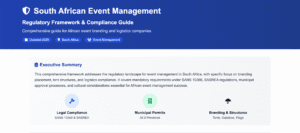Events management is an exciting field that involves planning and organizing events, ranging from small meetings to large-scale festivals and conferences. To excel in this industry, individuals need to possess a broad range of knowledge and skills. In this section, we will explore the various subjects that are essential for a successful career in events management.
Having a solid foundation in various subjects can equip aspiring events managers with the necessary knowledge and skills to excel in the industry. Understanding the fundamentals of business, marketing, communication, logistics, and operations are all necessary for organizing and executing successful events.
Key Takeaways
- Events management requires a diverse range of subjects to have a comprehensive education.
- Business and management, marketing and communication, as well as logistics and operations subjects, are all essential for aspiring events managers.
- Having a broad range of knowledge and skills can enhance an individual’s chances of success in events management.
Events Management Education in South Africa
South Africa offers a variety of educational opportunities for individuals interested in pursuing a career in events management. These programs are designed to equip students with the necessary knowledge and skills to succeed in the industry. Whether you are interested in event management courses, a comprehensive event management curriculum, or a full-fledged event management degree, South Africa has you covered.
Event Management Courses
Events management courses offer a great starting point for individuals looking to gain an understanding of the industry. These courses are typically short-term and cover a wide range of topics, including event planning, logistics, marketing, and budgeting. They are ideal for individuals who are looking to develop practical skills quickly and may not have the time or resources to pursue a full degree.
Event Management Curriculum
Those who are looking for a more comprehensive education in events management can consider pursuing an event management curriculum. These programs are usually offered at colleges or universities and provide a more extensive understanding of the industry. They cover a range of subjects, including event planning, project management, marketing, and business management. Students who complete an event management curriculum will be equipped with the skills required to plan and execute successful events.
Event Management Degree
The most comprehensive option for individuals interested in events management is to pursue a full-fledged event management degree. These degrees are typically offered at a tertiary institution and require a more significant investment of time and resources. The coursework covers topics such as event marketing, sponsorship, strategic planning, and risk management. Graduates of an event management degree program are equipped with the knowledge and skills required to succeed in all aspects of events management.
Overall, South Africa offers a variety of educational opportunities for individuals looking to pursue a career in events management. Whether you are interested in event management courses, a comprehensive event management curriculum, or a full-fledged event management degree, there is an option that caters to your needs. With these programs, you can acquire the knowledge and skills necessary to thrive in the exciting and dynamic field of events management.
Key Subjects for Events Management
Events management is an exciting and dynamic field that requires a diverse range of skills and knowledge to succeed. Aspiring events managers should consider studying the following subjects to enhance their chances of success:
Business and Management Subjects
Business and management subjects are crucial for events management professionals. These subjects cover topics such as entrepreneurship, strategic planning, financial management, and project management. Understanding these fundamental business principles is essential for organizing successful events, as it ensures that events are delivered on time, within budget, and to the satisfaction of clients and attendees.
Some of the key business and management subjects that aspiring events managers should consider studying include:
- Entrepreneurship
- Financial Management
- Project Management
- Event Planning and Management
Marketing and Communication Subjects
Effective marketing and communication are vital components of event management. Events managers need to be able to promote events successfully to attract attendees and clients. Marketing and communication subjects cover topics such as marketing strategy, public relations, advertising, and digital marketing. By studying these subjects, events managers can acquire the knowledge and skills necessary to develop effective marketing campaigns and communicate with stakeholders effectively.
Some of the key marketing and communication subjects that aspiring events managers should consider studying include:
- Marketing Strategy
- Public Relations
- Advertising
- Digital Marketing
Logistics and Operations Subjects
The smooth execution of an event relies heavily on efficient logistics and operations management. Logistics and operations subjects cover topics such as event planning, venue management, risk management, and supply chain logistics. By studying these subjects, events managers can acquire the knowledge and skills necessary to handle the practical aspects of event organization.
Some of the key logistics and operations subjects that aspiring events managers should consider studying include:
- Event Planning and Management
- Venue Management
- Risk Management
- Supply Chain Logistics
In conclusion, a comprehensive education in events management requires a diverse range of subjects. Business and management, marketing and communication, as well as logistics and operations subjects, are all essential for aspiring events managers. By studying these subjects, individuals can acquire the knowledge and skills necessary to excel in the exciting field of events management and attain event management qualifications.
Business and Management Subjects
Business and management subjects are vital for aspiring events managers. These subjects equip individuals with the necessary skills to handle the financial and strategic aspects of event organization.
One crucial subject to consider studying is entrepreneurship. This subject covers the fundamental principles of starting and managing a business, such as identifying opportunities, creating a business plan, and understanding the legal implications of running a business.
Strategic planning is another essential subject. This subject teaches individuals how to create and implement strategic plans that align with an organization’s goals and values. It covers various strategic planning models, such as SWOT analysis and scenario planning.
Financial management is also critical for events managers. This subject covers financial planning, budgeting, and accounting practices. Understanding financial management is crucial for organizing successful events that are financially viable.
Leadership and Team Management
Effective leadership and team management skills are also essential for events managers. A subject such as organizational behaviour teaches individuals how to manage teams effectively and cultivate a positive organizational culture.
Human resource management is another crucial subject. This subject covers the recruitment, selection, training, and development of employees. Understanding human resource management is essential for building a competent and motivated event management team.
| Key Business and Management Subjects for Events Management |
|---|
| Entrepreneurship |
| Strategic Planning |
| Financial Management |
| Organizational Behaviour |
| Human Resource Management |
Marketing and Communication Subjects
Effective communication and marketing are critical to the success of any event, regardless of its size or complexity. Events managers must have a good understanding of how to promote and communicate effectively with their target audience. The following are some of the critical marketing and communication subjects that aspiring events managers should consider studying:
Public Relations
Events managers must create a positive image for their clients and their events to attract sponsors and attendees. Public relations is a highly sought-after skill for events managers, and it involves managing a client’s image and reputation through various media channels. Topics covered in this subject include crisis management, press releases, media relations, and stakeholder engagement.
Marketing Strategy
Marketing strategy is the backbone of any event marketing campaign. It involves understanding the target audience, creating a compelling value proposition, and promoting the event through various channels. Topics covered in this subject include audience segmentation, positioning, branding, advertising, and social media marketing.
Digital Marketing
In today’s digital age, events managers have access to a vast range of tools to promote their events. Digital marketing involves leveraging various online platforms, such as social media, email marketing, and search engine optimization, to reach a broader audience. Topics covered in this subject include content marketing, search engine optimization, social media advertising, and email marketing.
Event Sponsorship
Securing event sponsors is critical to the financial success of an event. Events managers must understand how to identify, approach, and negotiate with potential sponsors successfully. Topics covered in this subject include sponsorship proposal writing, sponsorship evaluation, and contract negotiation.
Copywriting
Copywriting involves creating persuasive and engaging content that resonates with the target audience. Events managers must create compelling marketing materials, such as brochures, press releases, and website copy. Topics covered in this subject include copywriting principles, writing for different media channels, and proofreading.
By studying these marketing and communication subjects, aspiring events managers can acquire the necessary skills and knowledge to promote and communicate effectively with their audiences. Ultimately, this can lead to improved attendance, sponsorships, and revenue for the events they manage.
Logistics and Operations Subjects
Logistics and operations management are integral components of events management. The successful execution of an event requires efficient planning, coordination, and execution. Events managers must possess the necessary knowledge and skills to handle the practical aspects of event organization. The following logistics and operations subjects are essential for aspiring events managers:
Event Planning
Event planning is a critical subject for events management. This subject covers the process of conceptualizing, organizing, and executing events. Students learn how to develop event concepts, select venues, plan timelines, and manage budgets. Event planning equips events managers with the necessary skills to ensure events run smoothly and successfully.
Venue Management
Venue management is another crucial logistics and operations subject. It encompasses all aspects of venue selection, preparation, and management. Students learn how to conduct site inspections, negotiate contracts, and manage venue logistics, including catering, seating arrangements, and audio-visual equipment. Venue management is essential for successful event execution and guest satisfaction.
Risk Management
Risk management is a critical subject that prepares events managers for unforeseen circumstances. This subject teaches students how to identify potential risks, develop risk management strategies, and implement contingency plans. Events managers who understand risk management can mitigate potential setbacks and ensure events run smoothly.
Supply Chain Logistics
Supply chain logistics is a vital subject for events managers. This subject covers the coordination and management of supplies and materials required for an event. Students learn how to manage logistics, purchase supplies, and maintain inventory levels. Effective supply chain management ensures the timely and efficient delivery of necessary goods and enhances event execution.
These logistics and operations subjects provide aspiring events managers with the necessary skills to handle the practical aspects of event organization. By studying these subjects, individuals can acquire the knowledge and skills necessary to excel in the exciting field of events management.
Conclusion
In conclusion, a well-rounded education in events management requires a diverse range of subjects. Aspiring events managers should consider studying business and management, marketing and communication, as well as logistics and operations subjects.
Business and management subjects such as entrepreneurship, strategic planning, and financial management equip individuals with the skills necessary to organize successful events. Marketing and communication subjects such as marketing strategy, public relations, advertising, and digital marketing provide events managers with the knowledge and skills to promote events successfully.
Logistics and operations subjects such as event planning, venue management, risk management, and supply chain logistics are essential for handling the practical aspects of event organization.
By studying these subjects, individuals can acquire the necessary events management qualifications to excel in the exciting field of events management. Whether you are looking to plan private or corporate events, weddings, or conferences, a comprehensive education in events management will provide you with the tools necessary to thrive in this dynamic industry.
What Are Some Tips for Succeeding in Event Management?
Planning and executing successful events requires careful consideration and organization. Some tips for successful event management include setting clear objectives, creating a detailed timeline, collaborating closely with vendors and suppliers, anticipating potential challenges, and maintaining effective communication throughout the process. Additionally, being adaptable and prepared to make adjustments when necessary can significantly contribute to accomplishing a seamless and memorable event.
FAQ
Q: What subjects are needed for events management?
A: The subjects needed for events management include business and management, marketing and communication, as well as logistics and operations subjects. These subjects provide a well-rounded education and equip individuals with the necessary skills to excel in the industry.
Q: What educational opportunities are available in South Africa for events management?
A: South Africa offers various educational programs in events management, including courses and degrees. These programs provide students with a comprehensive understanding of the industry and its practices, preparing them for successful careers in events management.
Q: Which subjects are crucial for events management?
A: Key subjects for events management cover a wide range of areas, including business, marketing, communication, and logistics. These subjects enhance the chances of success for aspiring events managers and provide them with the knowledge and skills required in the industry.
Q: What role do business and management subjects play in events management?
A: Business and management subjects are essential for events management professionals. Understanding fundamental business principles, such as entrepreneurship, strategic planning, and financial management, is crucial for organizing successful events.
Q: How important are marketing and communication subjects in events management?
A: Marketing and communication subjects play a vital role in event management. Knowledge of marketing strategy, public relations, advertising, and digital marketing equips events managers with the skills necessary to promote events successfully.
Q: What are the logistics and operations subjects in events management?
A: Logistics and operations subjects are integral to events management. Subjects such as event planning, venue management, risk management, and supply chain logistics provide events managers with the practical skills required for smooth event execution.
Q: What subjects should be studied for events management qualifications?
A: To obtain events management qualifications, individuals should study subjects that cover business and management, marketing and communication, as well as logistics and operations. These subjects provide a comprehensive education for aspiring events managers.




